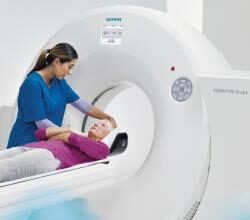
Kevin R. Campbell, MD, FACC
Now, more than ever, the practice of medicine has become a business. Traditional business skills and strategies are essential tools for success in both academic and private practice settings. As I have mentioned several times before in previous blogs, physicians must now not only be fastidious with a stethoscope or scalpel but also be equally as adept with managing a spreadsheet. The concept of the “physician executive” is garnering growing support in both academic and private practice circles. Dr Pam Douglass, former president of the American College of Cardiology (ACC), has publicly stated that the development and training of the new physician executive must be a top priority of the organization going forward. In fact, partnerships with the American College of Physician Executives and the ACC are underway.
This weekend in the Wall Street Journal business section, journalist Ruth Mantell discusses what she terms “must-have skills” that are now necessary for success and advancement in the corporate world. As I read the article, I reflected on how each of these highly sought after skills could be used to improve physician practice and ultimately, patient care. Each of the skills discussed are essential to the success of a Physician Executive and I believe are “must-have skills” that we must provide to young doctors in training as we move into the next iteration of the US Healthcare system.
1. Clear Communication: Ms Mantell correctly identifies effective communication as a key component to success. In medicine, we know that the ability to clearly communicate with patients improves outcomes. Healthcare systems in the future will rely more on cooperative co-management of disease among various providers. It will be very important to clearly and concisely communicate management plans for a particular patient among primary care physicians, specialists as well as mid-level providers. As mhealth (mobile health) and the expansion of the e-patient (electronic patient) becomes more mainstream, the ability to communicate both face to face and via email, twitter and other social media outlets will become increasingly important. Moreover, as groups integrate with hospital systems and begin to come to grips with Obamacare, communication with other healthcare professionals and healthcare industry executives is paramount. Without the ability to clearly state your position on an issue or negotiate a contract or manage hospital system politics, a physician’s success in the future will be limited.
2. Personal Branding: Again, Ms Mantell points out that online presence is an important part of how one is perceived in business today. As I have previously blogged, management of one’s online presence is critical to using social media effectively. Effective use of social media in medicine results in increased patient and physician engagement. As patients increasingly go to the internet to obtain medical information and to choose providers and healthcare systems, it is vital that physicians and healthcare systems alike carefully plan and manage their online reputations. Patients are now using Twitter to connect and discuss specific disease states. Often they are recommending (or not recommending) particular providers or hospitals. Proactive approaches to personal and system branding are critical to success. Physicians must develop an online personality and manage it effectively. Remaining active on Twitter, Facebook and creation of an interactive, frequently updated website is an important part of branding.
3. Flexibility: With enormous changes in the US healthcare system on the horizon, physicians and healthcare systems must remain flexible and embrace new technologies in order to remain competitive. Physicians must develop contingency plans in advance of government mandates and regulation in order to be prepared to respond quickly and in a way that makes good sense for patients, one’s practice and the healthcare system as a whole. No longer will “digging in your heels” and sticking to the status quo be a viable option. Success will come through compromise and negotiation. Having the ability to react to new mandates with a plan ready to implement will insure success and will keep you ahead of the curve. Healthcare reform is here to stay. What will define success and its impact on patient care in the US is the way in which the physician community responds. We must remain advocates for our patients and ensure that no matter what “system” we are forced to work in, that we always put the needs of the patient first.
4. Productivity Improvement: Ms Mantell correctly describes the fact that in business today, workers are asked to do more in less time with less support. Nowhere is that more true than in medicine. Decreasing reimbursement, increasing pressures to see more patients in less time and contain costs by eliminating support are stretching physicians thin. In the future, physicians who are able to develop strategies to become more productive will have higher success rates. Utilization of newer technologies, online tools and electronic applications will likely provide the mechanism for improved productivity.
Medicine is now a business. Ms Mantell’s article in the WSJ is a timely reminder of what we can all do to prepare for the practice of medicine in the future. Healthcare reform and skyrocketing healthcare costs have forced physicians and healthcare systems to work together and find new ways to provide superior care. Just as in business, there are new “must-have skills” that will separate successful physicians from the rest as we move into a new era in medicine. Providing excellent patient care should remain the central focus of every provider. However, understanding how to navigate the financial and regulatory challenges in healthcare are vital. As we educate tomorrow’s physicians to be kind, compassionate and competent, we must also train them to become effective physician executives as they enter the brave new world.








